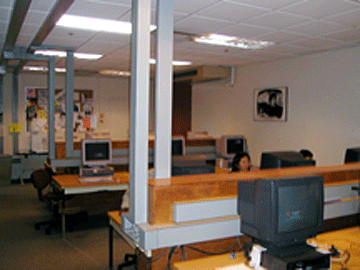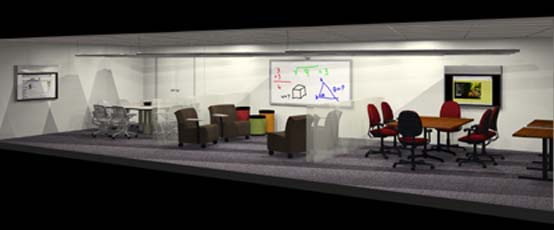Phil Long
In several formal and informal surveys taken over the past year, students have consistently expressed a need for computing spaces where they can work together, in addition to spaces where they can work individually. Cooperation and teamwork are an essential part of many MIT classes. Since the traditional Athena cluster model does not readily adapt to collaborative work, students have developed their own ad hoc solutions, not all of which harmonize with the Athena Rules of Use.
There are also new changes in the student computing landscape that need to be considered and reflected in student work spaces. Incoming freshmen are now advised that they should consider making a laptop their primary computing device. MIT continues to expand its wireless network, which is one important piece of supporting laptops, but more can be done to create a computing space that is truly laptop-friendly and more nearly matches student expectations of how laptops will be accommodated (e.g., power outlets, network drops, tabletop space).
Over the summer, Information Services and Technology's (IS&T) Academic Computing group is planning several pilot redesigns of existing Athena cluster spaces to make them better suited to support mobile computing. The first space is a small corner room off one of the largest clusters in the Student Center's W20-575D. The cluster will be closing in mid-May and is slated to re-open by the end of June.
 |
 |
| W20-575D before remodeling - May 2004 | W20-575D after remodeling - June 2004 |
Based on the information gathered in the student surveys and interviews, features of the new space will include:
We'd like to know what you think about these experiments in new learning spaces. Please comment below or send email to cluster_improvements@mit.edu!